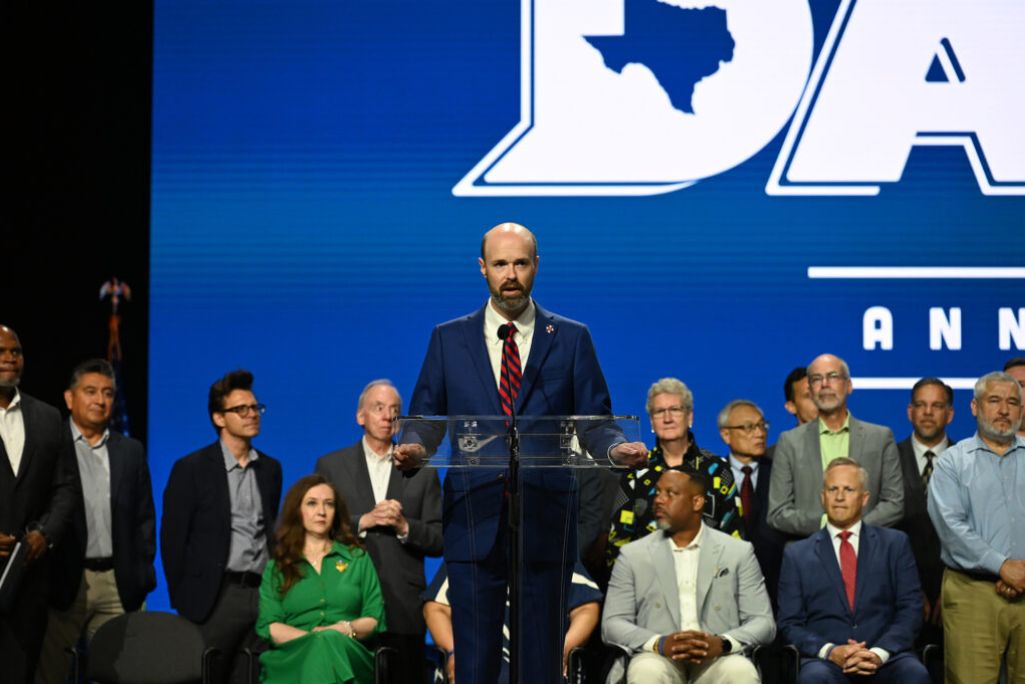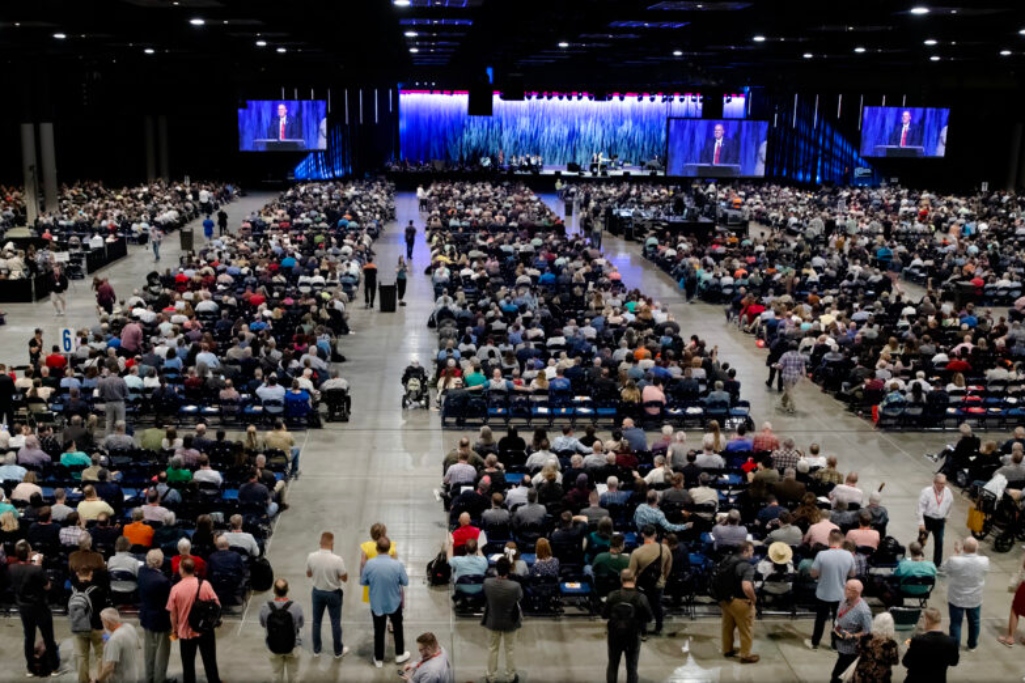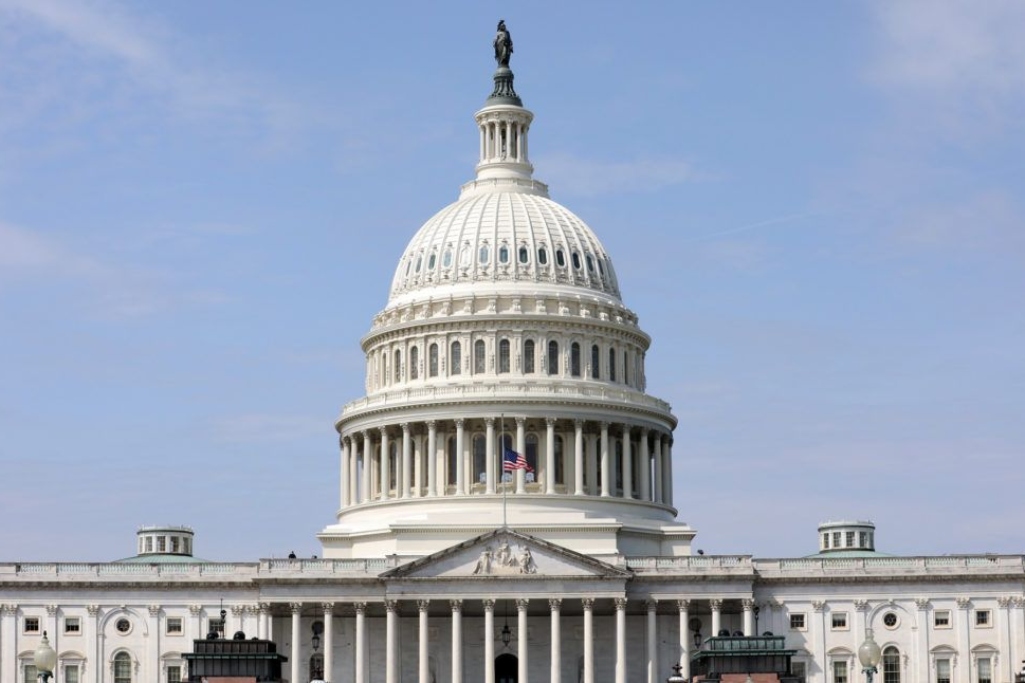
Andrew Walker presents a resolution in appreciation of the Cooperative Program to messengers at the 2025 SBC annual meeting in Dallas on June 10.
When Southern Baptist Convention (SBC) President Clint Pressley asked me to chair this year’s Resolutions Committee, I hesitated. Anyone familiar with the resolutions process at the SBC’s annual meeting understands why. Resolutions can serve as instruments of conviction or, just as easily, catalysts for controversy. Nuanced theological concerns, amendments from the floor and the challenge of striking the right tone — all of it makes the process delicate and, at times, daunting.
But having now completed the task as the chair of this year’s Resolutions Committee, I write with one overwhelming sentiment: gratitude.
This year’s resolutions process was marked by a spirit of unity rarely seen in our convention. What many perceived as a historically peaceful and orderly adoption of resolutions was not due to luck, but careful planning, wise deliberation and shared conviction. In fact, several pastors and messengers from across our convention’s various constituencies told me how grateful they were for both the substance and tone of this year’s resolutions. Not only that, but the resolutions we overwhelmingly affirmed were among the most conservative in recent memory. And while some of these statements made national headlines, what stood out to me — and what I reiterated to the media — was just how uncontroversial these resolutions were to Southern Baptists themselves. They represented, in many ways, the moral consensus of our people.
That we can speak with such clarity on contested cultural matters is no small thing. In a time of polarization and public confusion and even conflict within the convention, the ability to articulate common convictions — rooted in Scripture, not political ideology — is a gift to be stewarded. I pray these resolutions not only strengthen our churches internally but lower the temperature in other areas where disagreement persists.
This reflection is not intended to be a procedural manual for future committees, but I do think it’s worth noting a few of the guiding principles that shaped our work.
First, we intentionally limited the number of resolutions to ensure the body had time to consider and adopt them thoughtfully. Second, the schedule allotted greater time for ceremonial resolutions — an often overlooked but meaningful part of our convention life — which, in turn, opened room for other matters. Third, we sought to give voice as much as we considered worthwhile to those who submitted resolutions, including by crafting a comprehensive omnibus resolution: “On Restoring Moral Clarity through God’s Design for Gender, Marriage, and the Family.” In this, we attempted to incorporate the best elements from multiple submissions into a single, robust affirmation.
Fourth, and most significantly, we began our work by establishing a set of evaluative criteria, built upon the wisdom of past committees. We asked not only whether a proposed resolution was true, but whether it was wise, clear, timely and helpful. Each submission was assessed by the following considerations:
- Fidelity to our confessional documents and historic positions
- Doctrinal clarity and scriptural soundness
- The convention’s competence and standing to speak to the issue
- A commitment to unity without compromising truth
- The presence of gospel hope, not mere cultural critique
- A tone marked by Christian charity
- The urgency and relevance of the issue
- Avoiding redundancy with previously adopted resolutions
Resolutions are not binding. But they are clarifying. In a time of cultural drift and moral confusion, they help Southern Baptists say — together — what we believe and why it matters. These statements are meant to edify our churches, inform the public, and bear witness to the authority of Scripture and the lordship of Jesus Christ.
They address the pressing ethical issues of our time — from the sanctity of life to religious liberty, from human dignity to biblical sexuality — not with harshness, but with conviction and compassion. They aim not simply to settle debates, but to shape discipleship.
My prayer is that these resolutions will serve not only as declarations of belief but as instruments of formation — for our churches, for our children and for the watching world.
With appreciation to President Clint Pressley for appointing me to lead a committee of trustworthy denominational servants and gratitude to the messengers for passing these resolutions with such joyful agreement, thank you, Southern Baptists, for speaking with one voice.


